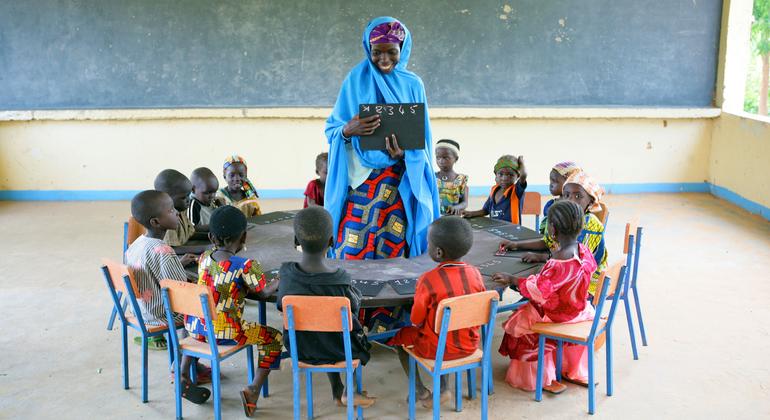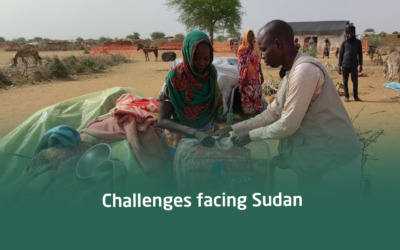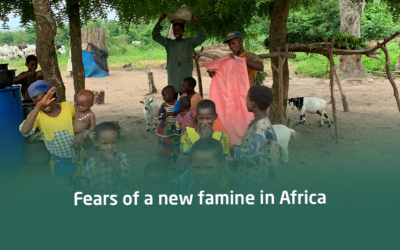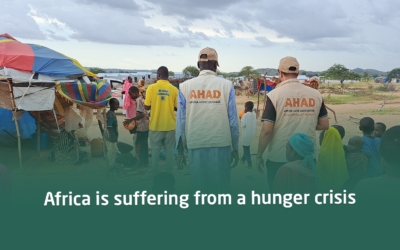The impact of building schools in Africa
The role of schools in promoting socio-economic development in Africa
Schools play a vital role in promoting social and economic development in Africa. Improving the quality of education and increasing the number of schools on the continent has a positive impact on local communities and on the future of future generations. The following is an extensive explanation of the impact of education on economic and social development:
Education and economic development
Increase employment opportunities
A good education enables individuals to acquire the skills and knowledge necessary to enter the job market. In Africa, where unemployment is a big challenge, education can change people’s lives by providing multiple job opportunities in different fields such as technology, medicine, engineering, education, and others.
Skills learned in schools include critical thinking, problem solving, and teamwork. These skills make individuals more efficient in the workplace and increase their ability to adapt to the demands of different jobs.
Strengthening the local economy
Educationally trained workers are more productive. Educated employees can use modern technology and advanced technologies, which contributes to increased efficiency and productivity in various industries.
Education encourages creative thinking and innovation. Educated individuals are better able to start new companies and develop innovative products and services. This contributes to the diversification of the local economy and the achievement of sustainable growth.
Social impact
Improving public health
Education helps in spreading awareness about health issues. Educated individuals are more aware of the importance of personal hygiene, proper nutrition, vaccinations, which contributes to improving overall health.
Educated people tend to adopt more healthy practices such as exercising regularly and avoiding harmful habits such as smoking and excessive alcohol consumption. This reduces the incidence of diseases and promotes the overall health of society.
Empowering women
Education gives girls and women the knowledge and confidence to participate effectively in society, both in the labor market and in community and political discussions. This promotes gender equality and contributes to the development of societies.
Increased rates of education among females are associated with delayed early marriage and reduced fertility rates. Educated women tend to marry at a later age and have fewer children, which leads to improved living conditions for families and increased educational opportunities for children.
Poverty reduction
Education helps break the cycle of poverty by providing better job opportunities and increasing income. Educated individuals can get higher-paying jobs and achieve financial stability.
Families that educate their children are less likely to be poor and rely less on social assistance. Education provides individuals with the tools to achieve economic independence, reducing pressure on government assistance programs and enhancing the financial sustainability of communities.
Building schools in Africa is not just an infrastructure project, it is an investment in the future. By providing quality education to children and youth, African societies can achieve sustainable economic growth, social development, and a brighter future for all.
Challenges and solutions in building and strengthening schools in Africa
Lack of infrastructure
Many regions in Africa are experiencing an acute shortage of financial resources necessary for the construction and maintenance of schools. This shortage translates into a small number of schools available to students, especially in rural and remote areas. In addition, the existing schools often lack basic facilities such as electricity and potable water, which makes the learning environment inadequate. This lack of infrastructure leads to significant barriers to access to education, as many children are forced to travel long distances to attend schools, increasing school dropout rates.
Quality of Education
Improving the quality of education in Africa faces multiple challenges, the most prominent of which is the shortage of qualified teachers. Many schools lack an adequate number of teachers, and the existing teachers are often not well trained. In addition, many schools lack modern curricula that reflect the needs of the market and global developments. This lack of educational quality leads to graduates who are inadequately prepared for the challenges of the labor market.
Access to education
Children in rural and remote areas have great difficulty accessing schools. The long distances that children have to travel to get to schools, and the lack of safe transportation, make it difficult for them to continue with education. In addition, economic and social factors such as poverty and traditional customs can significantly impede the access of children, especially girls, to education.
Solutions
Infrastructure improvement
The lack of infrastructure can be countered by adopting public-private partnerships. These partnerships can contribute to raising the resources needed to build and sustainably maintain schools. In addition, international aid and NGOs can play a vital role in providing financial and technical support for the construction and maintenance of schools. For example, sustainable school construction projects using local building materials and environmentally friendly technologies can be implemented.
Improving the quality of Education
To enhance the quality of Education, emphasis should be placed on ongoing teacher training programs. These programs can include training in modern teaching methods and educational technology, which helps teachers improve their performance and provide better education to students. In addition, the development of curricula to be adapted to the needs of the market is essential. Modern curricula should include the skills of critical thinking, problem solving, effective use of technology.
Facilitating access to education
Access to education can be facilitated by building mobile schools in remote areas. These schools can move between different communities to provide education to children living in hard-to-reach areas. In addition, providing safe transportation can help transport children from their homes to schools easily and safely. Using technology to promote distance education is also an effective solution. By offering online classes and digital educational programs, children in remote areas can get a quality education without having to commute long distances.
Addressing the educational challenges in Africa requires integrated efforts from governments, the private sector, and the international community. By investing in educational infrastructure, improving the quality of education, and facilitating access to schools, a significant improvement in the level of education on the continent can be achieved. This, in turn, will contribute to the promotion of socio-economic development, and ensure a better future for future generations.
The role of AHAD in promoting education in Africa
Charities play an important role in supporting and improving the quality of education in developing regions around the world, in particular in Africa. The “Ahad” Association is one of these associations that contributes significantly to the development of the educational system on the African continent through a variety of activities and initiatives.
AHAD plays a vital role in improving the educational system in Africa through a wide range of initiatives aimed at building and maintaining schools, training teachers, providing educational materials, and promoting access to education using technology. Through these efforts, the association contributes significantly to achieving sustainable development and raising the level of education on the African continent.
You can visit the AHAD website to find out more about the projects it offers
ALSO READ
WHAT THE FOOD BASKET CONTAINS IN AHAD
Join us in our message






